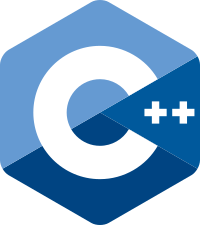?
Slides configuration
Slide Notes:
Hide
On Slide
On Separate Page
Merge Fragments
Show Slide Numbers
Apply
Reset
How to save slides as pdf?
Open the print dialog.
Change
Destination
to
Save to PDF
.
Change
Layout
to
Landscape
.
Change
Margins
to
None
.
Disable
Print headers and footers
option.
Enable
Print backgrounds
option.
Click the
Save
button.
Choose a filename and destination.
# C/C++ Programming  --- ```mermaid kanban column1[Polymorphisms] task1[Abstract base classes] task2[Pure virtual functions] task3[Virtual destructors] task4[Overriding functions] task5[Copy in class hierarchy] column2[Dependency Inversion] task6[Interfaces] task7[Extensibility] task8[Testability] ``` --- ## Polymorphisms --- ```c++ class Animal { public: Animal(std::string name) : name_{name} {} void speak() const { std::println("{} makes a sound.", name_); } private: std::string name_{}; }; ``` --- ```c++ Animal dog{"dog"}; dog.speak(); ``` ```c++ Animal cat{"cat"}; cat.speak(); ``` ```text dog makes a sound. cat makes a sound. ``` --- Different animals make different sounds. --- ```c++ class Animal { public: Animal(std::string name) : name_{name} {} virtual ~Animal() = default; void speak() const { std::println("{} says {}.", name_, speak_impl()); } private: std::string name_{}; virtual std::string speak_impl() const = 0; }; ``` Note: * Virtual keyword to indicate this is a method that can be modified by subclasses. * `= 0` since we don't provide a default implementation, subclasses have to implement the method. * Private because it should not be possible to call the speak_impl() method on an Animal. --- ```c++ Animal dog{"dog"}; // error ``` Cannot instantiate abstract class. --- * Animal is an abstract class. * Virtual destructor is required! * speak_impl() is a pure virtual function. * Specific animals need to provide a speak_impl() implementation. Note: * If a class has a virtual function, it also needs a virtual destructor. --- ```c++ class Dog : public Animal { public: Dog() : Animal("dog") {} private: std::string speak_impl() const override { return "bark"; } }; ``` Note: * Override keyword makes it explicit we want to implement the speak_impl method. * If speak_impl was not virtual in Animal, this would cause a compiler error. --- ```c++ class Cat : public Animal { public: Cat() : Animal("cat") {} private: std::string speak_impl() const override { return "meow"; } }; ``` --- ```c++ class Bear : public Animal { public: Bear() : Animal("bear") {} private: std::string speak_impl() const override { return "roar"; } }; ``` --- ```c++ class Hamster : public Animal { public: Hamster() : Animal("hamster") {} private: std::string speak_impl() const override { return "squeak"; } }; ``` --- ```c++ Dog dog{}; dog.speak(); ``` ```c++ Cat cat{}; cat.speak(); ``` ```c++ Bear bear{}; bear.speak(); ``` ```c++ Hamster hamster{}; hamster.speak(); ``` ```text dog says bark. cat says meow. bear says roar. hamster says squeak. ``` --- ```c++ void speak(Animal const& animal) { animal.speak(); } ``` ```c++ Dog dog{}; speak(dog); ``` ```c++ Cat cat{}; speak(cat); ``` ```text dog says bark. cat says meow. ``` Polymorphism. Note: * Cannot instantiate an abstract class. * But we can make a (const) reference. * The reference will accept any class that implements the abstract class. * <https://compiler-explorer.com/z/axo4bMs1M> --- ### Rule-of-5 --- Classes with a virtual function also need a virtual destructor! --- So we also need to add the other special member functions. --- * Copy constructor. * Copy assignment operator. * Move constructor. * Move assignment operator. --- Should we allow copying Animal objects? --- ```c++ Cat cat{}; Dog dog{cat}; // uses copy constructor from Animal ``` No, that would make it possible to assign cats to dogs, which does not make sense. --- So we disable the special member functions! --- ```c++ [7-10] class Animal { public: Animal(std::string name) : name_{name} {} virtual ~Animal() = default; Animal(Animal const&) = delete; Animal& operator=(Animal const&) = delete; Animal(Animal&&) = delete; Animal& operator=(Animal&&) = delete; void speak() const { std::println("{} says {}.", name_, speak_impl()); } private: std::string name_{}; virtual std::string speak_impl() const = 0; }; ``` --- It never makes sense to implement copy in an inheritance hierarchy! --- ### Best practices --- #### Need a virtual function? * Add a virtual destructor. * Disable copy and move. --- #### Make sure your hierarchies make sense * A cat, dog, ... are animals. * A book is not, don't create a Book class that implements Animal. --- ## Dependency Inversion A common use-case for polymorphisms. --- ```c++ class PayPal { public: void process_payment(std::string recipient, double amount) { /*...*/ } }; ``` ```c++ class PaymentService { public: void pay(std::string recipient, double amount) { paypal_.process_payment(recipient, amount); } private: PayPal paypal_; }; ``` Note: * Is this a good design? * Good: Payment implementation detail in PayPal class. * Bad: What if we want to add Payconiq? * Bad: What if we want to test the PaymentService class? --- ### Good * Implementation details in the PayPal class. --- ### Bad * Hard dependency of PaymentService on PayPal. * Difficult to test the PaymentService class. * Hard to support different payment methods. Note: * We can't unittest the PaymentService class in isolation. * We would need to use the development PayPal server and test PaymentService and PayPal together. --- Depend on abstractions instead! --- Create an interface for the payment method. --- ```c++ class PaymentProcessor { public: virtual ~PaymentProcessor() = default; PaymentProcessor(PaymentProcessor const&) = delete; PaymentProcessor& operator=(PaymentProcessor const&) = delete; PaymentProcessor(PaymentProcessor&&) = delete; PaymentProcessor& operator=(PaymentProcessor&&) = delete; virtual void process_payment(std::string recipient, double amount) = 0; }; ``` ```c++ class PayPal : public PaymentProcessor { public: void process_payment(std::string recipient, double amount) override { /*...*/ } }; ``` Note: * PaymentProcessor only has pure virtual functions, so it is an interface. * PayPal implements the interface. * We can now also create Payconiq, ... classes that implement the interface. --- ```c++ class PaymentService { public: PaymentService(PaymentProcessor& processor) : processor_{processor} {} void pay(std::string recipient, double amount) { processor_.get().process_payment(recipient, amount); } private: std::reference_wrapper<PaymentProcessor> processor_; }; ``` Note: * Why std::reference_wrapper? * A reference is a constant, it cannot be changed. * This would make PaymentService not copy-able and move-able. * We want to avoid constant members. * std::reference_wrapper makes all this possible again. ---  ```c++ PayPal paypal{}; PaymentService service{paypal}; service.pay("me", 100'000'000'000); ``` Note: * We could've just as easily created a Payconiq object and inject it into the payment service. --- PaymentService now depends on PaymentProcessor (an abstraction) instead of PayPal (a concrete class). This is called dependency inversion. --- Dependency inversion makes it easy to... --- Implement new types of payment processors. For example Payconiq. --- Test the PaymentService class by creating a fake PaymentProcessor we can manipulate in the unit-tests. --- ## Best practices --- * Depend on abstractions instead of concrete classes. * Avoid const members in classes. --- ## Exercises